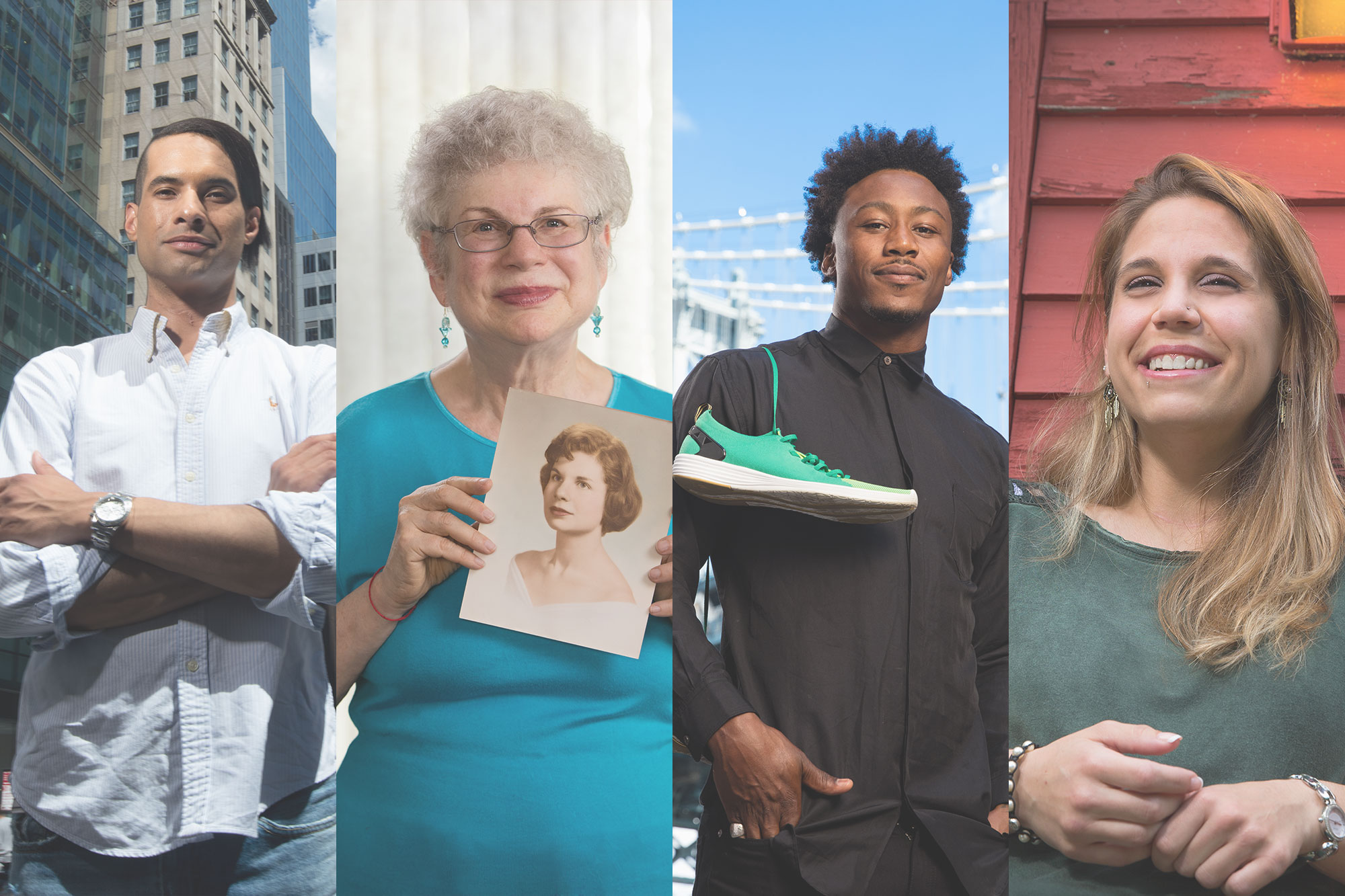If I can help one person avoid having to go through some of the things I’ve gone through, then I can fall asleep at night
As someone who graduated from an Ivy League college and worked in politics, Jenni says she sometimes struggles to reconcile her exterior image with her interior life.
Originally, I didn’t want anyone to know about my experience with mental illness because there is such a stigma around it. I probably had my own stigma attached toward myself.
Over time, though, Jenni became wary of what she calls her “dual identity.”
I have this public persona and then I have this private self. They feel so disconnected from each other. In my private life, I’ve been in and out of treatment for years. I struggle with severe depression and post-traumatic stress disorder (PTSD). I’ve had issues with food and all these different things that no one can see on the surface.
To educate herself about her own issues, Jenni read and listened to the stories of others who had similar experiences. She gained respect for people who were able to be open and honest about their struggles, and she derived hope and inspiration from what she learned.
As much as I might think that no one cares about my story, which is a thought that I have quite frequently, I don’t think it’s really true.
I’m tired of living in a world where I have this immense cognitive dissonance between how I present to the world and how I feel internally. I don’t want to live that way anymore because it feels disingenuous and I’m very big on people being genuine.
Jenni’s struggles with depression began in high school and intensified in college. After she experienced a sexual assault during her senior year of college, her struggles were compounded by the trauma.
The circumstances around that experience led to me thinking it was my fault and to a lot of internalization of the blame for what happened. I never told anybody about the assault until I was 24. It’s still something I struggle with. It’s something that I cognitively understand is not rational, but I can’t emotionally accept that it is a fact. It’s definitely a process.
In her mid-20s, she sought treatment at McLean’s Gunderson programs, which specialize in care for people with personality disorders. The treatment there was a game changer for her and her family.
The groups are intense, and they get at really core issues. You get to know the people you’re in treatment with. The therapists there are wonderful, but they also don’t put up with anything, and I appreciate that both in my personal and professional life.
The late John Gunderson, MD, worked with Jenni and her parents in family therapy.
Dr. Gunderson didn’t abide by the established roles of who had power. He wasn’t intimidated by my father or my mother at all, and he put us all on even playing fields.
He did a lot in terms of educating my parents and helping them understand how their communication styles were ineffective with me. He helped me understand the same things. Over time, we really began to develop an ability to have more honest conversations.
Jenni completed a master’s degree in human relations, focusing on non-clinical mental health. Given her experience and love of public policy, she went to work for an organization devoted to substance use disorder policy. She feels this position allows her to use her personal experience to help a larger population.
I have always wanted to work in a public facing position. Within my position now, my personal experience within the world of mental health helps me every day. Though I have never struggled with opioids, I feel I know the pain experienced by that community more than others.
I am so grateful that my lived experience can be of service to a larger community of people who have been affected by mental health.
In the future, she would also like to work in the area of social justice. Jenni is grateful to have received world-class treatment for her mental health challenges. She wishes everyone could receive such high-quality care, and she wants to help make that happen.
My parents instilled a very strong sense of values in my sister and me—and one of those is the equality of the human condition.
As complicated as her relationship with her parents has been, she says they are her biggest supporters and the source of her life’s mission.
If I can help one person avoid having to go through some of the things I’ve experienced, then I can fall asleep at night because I feel like I’ve done something for somebody else, and I’m less concerned about myself than I am about other people. That’s the moral of my story.

